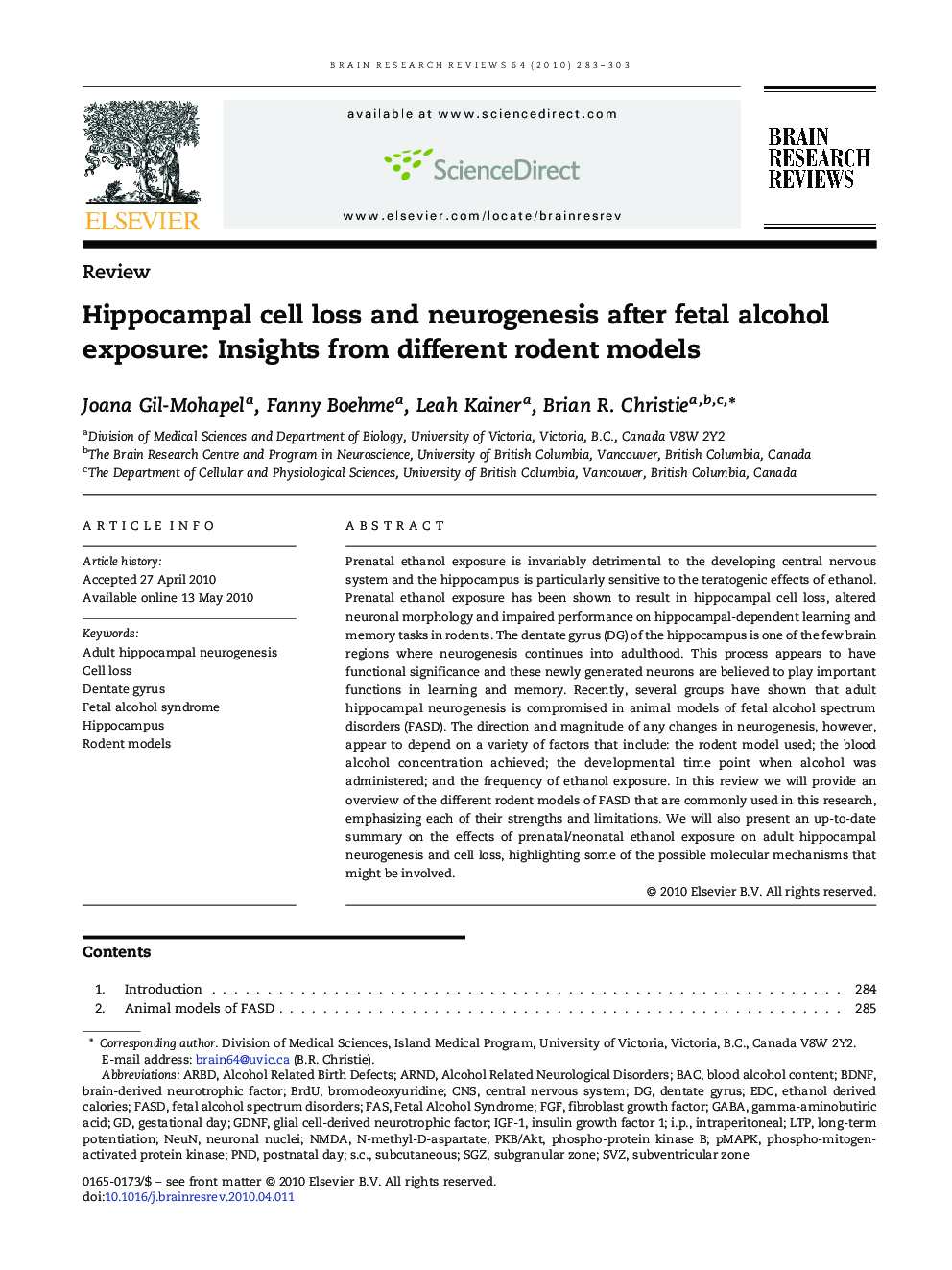| Article ID | Journal | Published Year | Pages | File Type |
|---|---|---|---|---|
| 4333637 | Brain Research Reviews | 2010 | 21 Pages |
Prenatal ethanol exposure is invariably detrimental to the developing central nervous system and the hippocampus is particularly sensitive to the teratogenic effects of ethanol. Prenatal ethanol exposure has been shown to result in hippocampal cell loss, altered neuronal morphology and impaired performance on hippocampal-dependent learning and memory tasks in rodents. The dentate gyrus (DG) of the hippocampus is one of the few brain regions where neurogenesis continues into adulthood. This process appears to have functional significance and these newly generated neurons are believed to play important functions in learning and memory. Recently, several groups have shown that adult hippocampal neurogenesis is compromised in animal models of fetal alcohol spectrum disorders (FASD). The direction and magnitude of any changes in neurogenesis, however, appear to depend on a variety of factors that include: the rodent model used; the blood alcohol concentration achieved; the developmental time point when alcohol was administered; and the frequency of ethanol exposure. In this review we will provide an overview of the different rodent models of FASD that are commonly used in this research, emphasizing each of their strengths and limitations. We will also present an up-to-date summary on the effects of prenatal/neonatal ethanol exposure on adult hippocampal neurogenesis and cell loss, highlighting some of the possible molecular mechanisms that might be involved.
